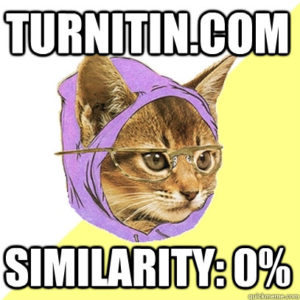A very silence Friday morning in the library (PSZ). I try to make it a habit to hover over news headlines. During the working days, my assistant will choose articles from the newspaper to be shared on our News Board @ Perpustakaan Sultanah Zanariah.
An article from NST caught my attention…

At both events, I was invited to address issues around managing generational differences and expectations. This is certainly a challenging problem for many companies.
Currently, many organisations have teams that consist of people who are from the Baby Boomer Generation (1943 to 1964); Generation X (1964 to 1979); and Generation Y and Millennials (1980 to 2001), all having to work together.
I reminded the participants in both events that much of our workplace modalities were structured to meet the needs of a generation of a bygone era. Our practices at work were designed to establish authority, and drive compliance through direction, and one way communication.
Historically, this approach worked because it is consistent with the values of the generation it was designed to serve.
However, this structure is out-of-date for the majority of workplaces today.
Right now, we live in a world where collaborative work is required all the time. This involves people of differing perspectives who all work in the same team, which poses a range of very specific problems, for both the individual and the organisation.
And, the difficulties stem from what people from different generations deem important.
The Baby Boomer Generation subscribes to the “engage me” culture. They were raised in a period where social norms had shifted dramatically, and economic prosperity was possible if you worked hard enough.
This is a generation of workaholics, and they want to be involved in all decision-making and are interested to bring their own perspectives to any discussion.
At work, this generation enjoys having regular, long and unhurried meetings. And, they are happy to call for these meetings at any time, day or night. They will not have any issues about these hours being odd, and will feel that it is just part of the rigours of business.
The next generation is the Gen Xers. This generation of people often value independence and self-sufficiency, even as they place a high value on peer-to-peer interaction. They seek balance in their lives between work and family, and they often view large institutions and formal organisations with disdain.
Much of this generation is focused on independence through education, and personal responsibility drives them. Generation X, will not want to discuss office matters outside working hours, and do not appreciate text messages or emails that they feel they are expected to deal with immediately.
Generation Y and Millennials are the “connected” generation. Technology is an extension of their very being. Texting is the preferred mode of communication, even when they are sitting next to each other. And Facebook, Instagram, and Twitter capture every detail of their lives, allowing continuous connection with their online community.
Consequently, they expect all parts of their life to replicate this level of pervasive access.
At workplaces, Gen Ys will not want meetings, as they will find this a profound waste of time. They prefer messages, emails, voice-mails, messenger and face-time. To this cohort, communication is instant and requires no planning.
How can you relate to employees or colleagues from these different age groups?
Organisations must experiment with mixed-age teams, and reverse mentoring programmes that enable older, experienced workers to interact with, and learn from younger hires. The highest value task for the modern workplace leader is to create a suitable environment for this type of co-mingling to take place.
You must ensure that people from different generations understand their colleagues in the light of their values, their personal and lifestyle traits, based on what motivates them.
For example Baby Boomers have been schooled at being team players, and their leadership style is habitually collegial. This involves sharing responsibilities and developing a certain sense of camaraderie.
They prefer leisurely and deliberate meetings, where relationships would be formed.
Conversely, the driving spirit behind the Gen Xers is very entrepreneurial. Freedom is the best reward for them. So, tedious communication protocols just wear them down, and long meetings mean that their work-life balance is being impinged on.
Gen Ys and Millennials on the other hand are looking for participative experiences. Being in stuffy meeting rooms looking at charts and slides, and listening to lectures about the way forward, will demotivate and demoralise them. For this generation, work product just needs to deliver results. They do not pay much heed to old-school organisational norms.
Once you become aware of what motivates these different generations, you will somewhat comprehend why people behave the way they do. This understanding then helps you manage your own expectations, and you can figure out ways of influencing the people around you, at work.
Whether this multi-generational workplace feels happy and productive or challenging and stressful will depend primarily on your ability to empathise with colleagues who get motivated by different things.
Shankar R. Santhiram is managing consultant and executive leadership coach at EQTD Consulting. He is also the author of the national bestseller “So, You Want To Get Promoted?”



